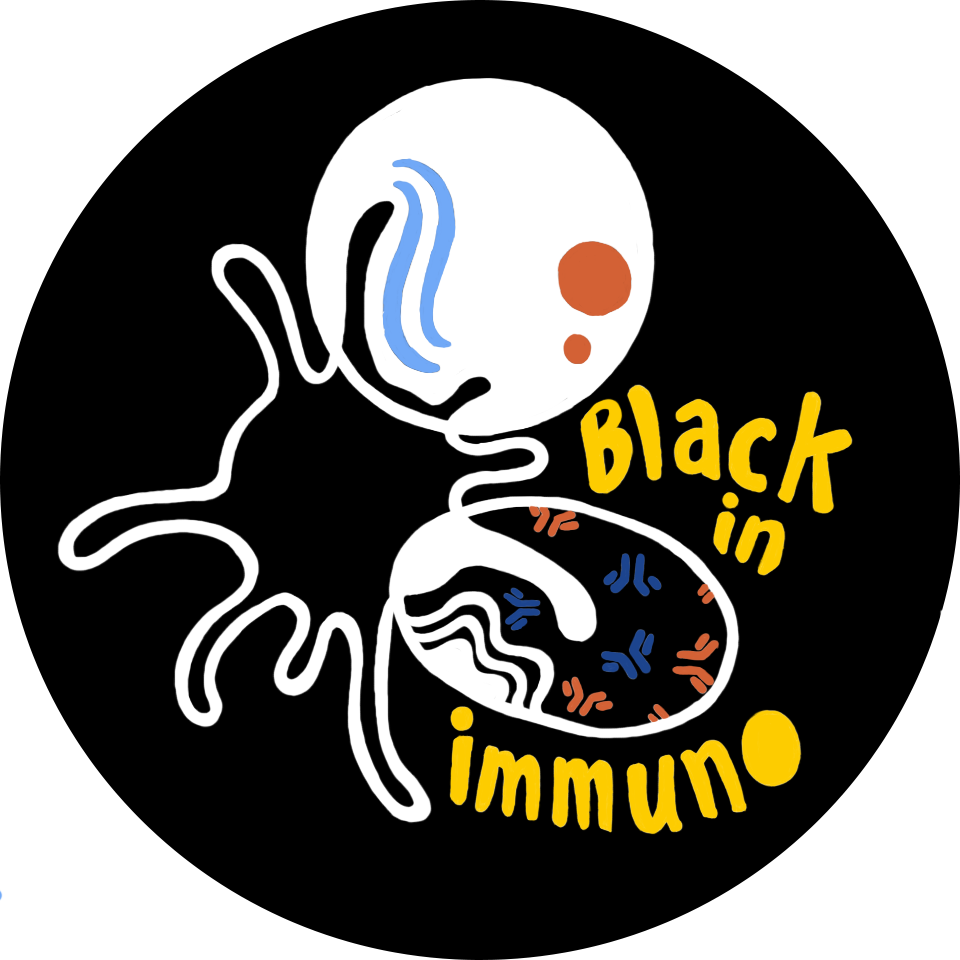Immuno at the Bedside: Translational Science Talks
Revisit the talks and Q&A using the link above, and/or check out the video and bios below.
About the Speakers
Cornelius Taabazuing, PhD
Talk Title: Proteolytic regulation of pyroptosis
Twitter: @taabaman
Dr. Taabazuing is a postdoctoral fellow in the Department of Chemical Biology at Memorial Sloan-Kettering Cancer Center in the lab of Dr. Daniel Bachovchin. He earned his bachelor’s and his Ph.D. at the University of Massachusetts Amherst. As a graduate student, he worked on understanding the chemistry of the enzymes that sense and regulate the adaptive response to hypoxia. His current research is focused on understanding the molecular mechanism of innate immune activation and regulation. He recently discovered a new inflammasome belonging to the ZU5 domain containing family of proteins that activates the innate immune system. He uncovered the molecular mechanisms of activation and revealed fundamental bidirectional crosstalk between apoptotic and pyroptotic signaling networks. As an independent investigator, he will study the molecular regulation of other ZU5 proteins that sense genotoxic stress and regulate immunity. Dr. Taabazuing also cares deeply about improving diversity and equity in STEM and has been involved in many initiatives that are aimed at increasing representation.
Oladipo Elijah Kolawole, PhD
Talk Title: COVID -19 Vaccine Research and Development Journey in Africa.
Twitter: @OladipoKolawol5
Dr. Oladipo Elijah Kolawole is an International Fellow of ICMR/AU-STRC, with a Ph.D. in Medical Virology and Immunology from the Ladoke Akintola University of Technology. Presently, he holds a faculty position (HOD) at the Department of Microbiology, Adeleke University, Ede, Osun State, Nigeria. He focuses on vaccines and diagnostic kits development for neglected tropical diseases.
Makeda Robinson, PhD
Talk Title: The evolution of an infectious disease specialist during COVID-19
Twitter: @MakedaLRobinson
Dr. Makeda Robinson is from Long Beach, California. She earned her MD and PhD from Stanford University School of Medicine and is currently a Postdoctoral Infectious Diseases specialist at the University. She is a recipient of a Howard Hughes Medical Institute Fellowship and is a Jackie Robinson Foundation Scholar. Her current research focuses on understanding virus-host dynamics in the setting of emerging viral pathogens which has led her to pursue translational approaches to diagnose and treat novel infections. In response to the ongoing COVID-19 pandemic, Dr. Robinson has developed a research project centered on better understanding age-dependent differences in the immune response to infection to identify key windows for treatment and predict disease progression. In parallel she is working to spread evidence-based information about COVID-19, and has commented on current issues surrounding the pandemic in CNBC, USA Today, and The Huffington Post.
Tonya Aaron
Talk Title: Inflammation limits the longevity of humoral immunity by inhibiting plasma cell retention in the bone marrow
Twitter: @taaron24
Tonya Aaron is a 7th year MD/PhD candidate at the Albert Einstein College of Medicine in the laboratory of Dr. David Fooksman in the Department of Pathology. She was born and raised in Fort Lauderdale, Florida and received her B.A in Biochemistry/Molecular Biology. Her research focuses on the effects of inflammation on the longevity of humoral immunity in the context of model antigen immunizations and infection models.
Devon Eddins, PhD
Talk Title: Pathogenic neutrophilia in Black patients affected by severe COVID-19
Twitter: @eddinsmed
Devon is a James T. Laney Doctoral Fellow in the laboratory of Eliver Ghosn at the Lowance Center for Human Immunology, Emory University School of Medicine in Atlanta, GA. Devon’s studies are centered on the laboratory’s goal of understanding tissue-resident versus tissue-recruited immune lineages and responses, with emphasis on innate immune regulation mediated by tissue-resident macrophages in antiviral immunity. To this end, Devon’s recent studies have employed multi-omic single-cell technologies—including high-dimensional 30+ parameter flow cytometry and virus-inclusive scRNA-seq—to study immune responses in hospitalized COVID-19 patients requiring ICU admission and mechanical ventilator support.





